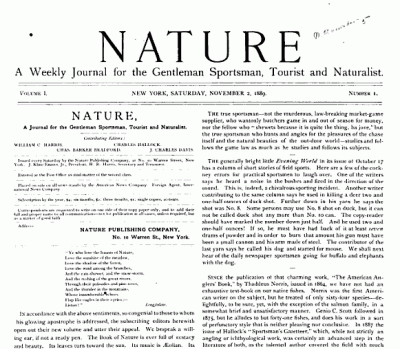
The first magazine I ever subscribed to was Smithsonian. As a kid, I devoured secondhand copies of Air & Space — and one of them featured a subscription card for Smithsonian, a sister publication. “Would you like to read articles on the following topics?” it read, and as I looked at the list of topics, I found myself saying “Yes. Yes, I would.”
I was too young to have had a bank account, so I pestered my folks and I think even gave them the $20 or whatever for a subscription. And so, off and on for the past 15 years or so, I’ve read Smithsonian — overall I think it’s a neat magazine.
But it’s definitely for old people. The ads (for cruises, specialty bow ties, and Jitterbug phones) tell you all you need to know about the magazine’s demographic — and some superficial research pegs a surveyed demo as well into the 60+ age bracket. So I wasn’t entirely surprised to read this curmudgeonly article in the October 2010 issue, on the “humorous back page” section…
My Big Hang-Up in a Connected World
One man’s rage against the communication revolution and the dying of civility[…] Like me, my mother was not quite ready for the communication revolution. As a teacher of journalism, I tell myself that all this connectedness is the link that joins the Family of Man. But in my quieter moments (of which there are now not many), I see we’ve created a nation of zombies—heads down, thumbs on tiny keyboards, mindless millions staring blankly, shuffling toward some unseen horizon. To them, the rest of us are invisible. Not long ago, a colleague was startled to see a young woman approaching; she had been too absorbed in her texting to notice the words “Men’s Room” on the door. For one brief shining moment, she was at a loss for words.
These days, I, too, carry a cellphone clipped to my belt, hoping the pod people (er…iPod people) will mistake me for one of their own. But I rarely turn it on. Judging from all the urgency around me, I alone seem to have nothing to say, nothing that demands I communicate that instant. I await no call, text or e-mail of such import that it couldn’t be served as well with a stamp and a complete sentence, both of which seem destined for history’s dustbin…
The most remarkable finds in my “True Stuff from Old Books” series have been the articles and anecdotes that prove the good-old-days weren’t any different from the here and now, in terms of what sorts of things scare people, and excite people, and challenge people; what sorts of emotions are perhaps simply human, more than a reaction to something specific in the culture. Human beings are uncomfortable with change; no more or less now than ever before.
Now I think so, but is that true? I challenged myself to find an absolutely equivalent sentiment about the dehumanizing menace of all this durn-blasted newfangled technology from at least 100 years ago.
It took me about three minutes in Google Books.
From the journal Nature, November 1889 issue, comes this article titled “Nature’s Revenge on Genius.” (Emphases and paragraph breaks are mine.)


